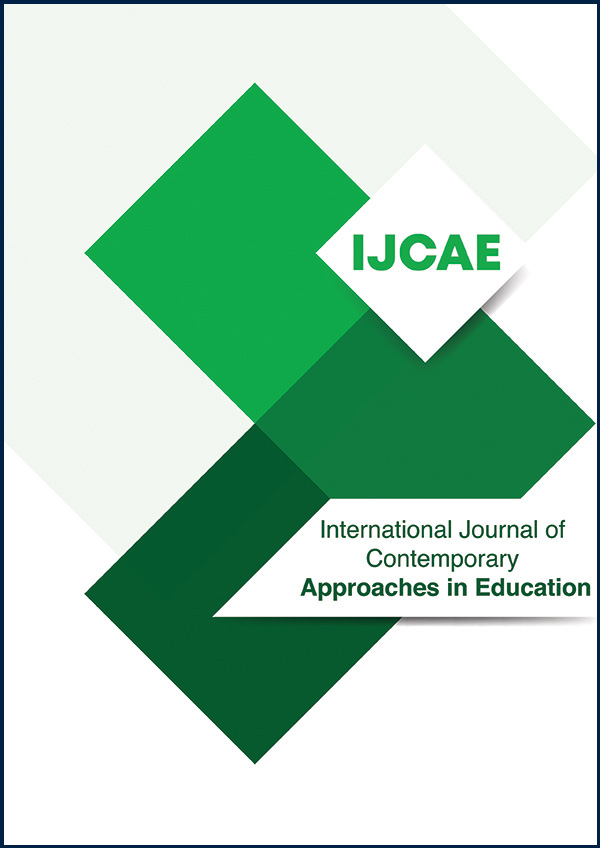- Arslan, O. Türk Medeni Kanunu’na Göre Kurulan Vakıfların Gelir Kaynakları. Akademik Bakış Uluslararası Hakemli Sosyal Bilimler Dergisi, 235-245. [Google Scholar]
- Aslan, M., & Kaya, G. (2004). 1980 Sonrası Türkiye’de Siyasal Katılımda Sivil Toplum Kuruluşları. CÜ İktisadi ve İdari Bilimler Dergisi, 5(1), 213-223. [Google Scholar]
- Atalay, Nazan. (2021). Geri Dönüşümün Ekonomilere Katkısı (Yayınlanmamış Yüksek Lisans Tezi). Gaziantep Üniversitesi, Sosyal Bilimler Enstitüsü, Gaziantep. [Google Scholar]
- Boztepe, H. (2014). Sivil Toplum Kuruluşlarında Halkla İlişkiler: Kurumsal Web Sayfalarının Bağışçı İlişkileri Açısından Fon Sağlama Aracı Olarak Kullanımı. Erciyes İletişim Dergisi, 3(4), 150-168. [Google Scholar]
- Çarkoğlu, A., & Aytaç, S. E. (2020). Türkiye’de bireysel bağışçılık ve hayırseverlik. İstanbul: TÜSEV Yayınları, (84). [Google Scholar]
- Çetin, H. (2020). Türkiye’de geri dönüşümü yapılan evsel katı atıkların çevresel, toplumsal ve ekonomik faydalarının incelenmesi: Eskişehir örneği (Master's thesis, Fen Bilimleri Enstitüsü). [Google Scholar]
- Demirbağ, B. C. & Güngörmüş, Z. (2012). Bireylerin Evsel Katı Atık Yönetimine İlişkin Bilgi ve Davranışları. Gümüşhane Üniversitesi Sağlık Bilimleri Dergisi, 1 (3), 127-137. Retrieved from https://dergipark.org.tr/tr/pub/gumussagbil/issue/7507/98958 [Google Scholar]
- Demirbas, A. (2011). Waste management, waste resource facilities and waste conversion processes. Energy Conversion and Management, 52(2), 1280-1287. [Google Scholar]
- Dinçay, İ. (2016). Sivil Toplum Kuruluşlarının Ekonomik Sorunları Ve Çözüm Önerileri. Kahramanmaraş Sütçü İmam Üniversitesi İktisadi ve İdari Bilimler Fakültesi Dergisi, 5(2), 331-346. [Google Scholar]
- Dyson, B., & Chang, N. B. (2005). Forecasting municipal solid waste generation in a fast-growing urban region with system dynamics modeling. Waste management, 25(7), 669-679. [Google Scholar]
- Güvendi, F. M. (2018). Eğitim alanında faaliyet gösteren yerel sivil toplum kuruluşlarının çalışmalarının ve sorunlarının incelenmesi (Master's thesis, Eğitim Bilimleri Enstitüsü). [Google Scholar]
- Göktaş, V. (2014). Bireylerin bağış yapma davranışlarını etkileyen faktörlerin belirlenmesine yönelik bir araştırma (Master's thesis, Sakarya Üniversitesi). [Google Scholar]
- Göymen, Korel (2004). "Küresel Sivil Toplum: Gereksinme, Fırsatlar ve Engeller". I. Ulusal Sivil Toplum Kuruluşları Kongresi, Küresel Demokrasinin Gelişmesi ve Katılım Sağlanması Açısından Sivil Toplu m Kuruluşları Bildiriler Kitabı, 4-6 Haziran 2004, s: 67-71. [Google Scholar]
- Hayta Bayazıt, A. (2006). Çevre kirliliğinin önlenmesinde ailenin yeri ve önemi. Ahi Evran Üniversitesi Kırşehir Eğitim Fakültesi Dergisi, 7(2), 359-376. [Google Scholar]
- Karagözoğlu, M. B., Özyonar, F., Yılmaz, A., & Atmaca, E. (2009). Katı atıkların yeniden kazanımı ve önemi. Türkiye’de Katı Atık Yönetimi Sempozyumu (TÜRKAY 2009), 15-17. [Google Scholar]
- Magram, S. F. (2011). Worldwide solid waste recycling strategies: A review. Indian Journal of Science and Technology, 4(6), 692-702. [Google Scholar]
- Şahin, L., & Öztürk, M. (2011, January). Küreselleşme Sürecinde Sivil Toplum Kuruluşları ve Türkiye'deki Durumu. In Journal of Social Policy Conferences (No. 54, pp. 3-29). [Google Scholar]
- Şengül, Ü. (2010). Atıkların geri dönüşümü ve tersine lojistik. Paradoks Ekonomi, Sosyoloji ve Politika Dergisi, 6(1), 73-86. [Google Scholar]
- Yılmaz, A., & Bozkurt, Y. (2010). Türkiye'de Kentsel Katı atık Yönetimi Uygulamaları ve Kütahya Katıatık Birliği (KÜKAB) Örneği. Suleyman Demirel University Journal of Faculty of Economics & Administrative Sciences, 15(1). [Google Scholar]
- Yılmaz, A. M., Niyaz, Ö., & Tomar, O. (2021). Türkiye'deki Tüketicilerin Katı Atıkların Geri Dönüşümü Konusundaki Bilinç Düzeylerinin ve Farkındalıklarının Belirlenmesi. ÇOMÜ Ziraat Fakültesi Dergisi, 9(2), 379-392. [Google Scholar]
- Yılmazkarasu, B. (2018). Gamified Product Design For Paper Recycling (Unpublished Master Thesis). Bahçeşehir University Graduate School Of Social Sciences Game Design Master Program, İstanbul. [Google Scholar]
- Yüksel, M. (2020). Geri dönüşüm neden zor? Tüketici açısından geri dönüşüm önündeki engeller (Master's thesis, Sosyal Bilimler Enstitüsü). [Google Scholar]
|

